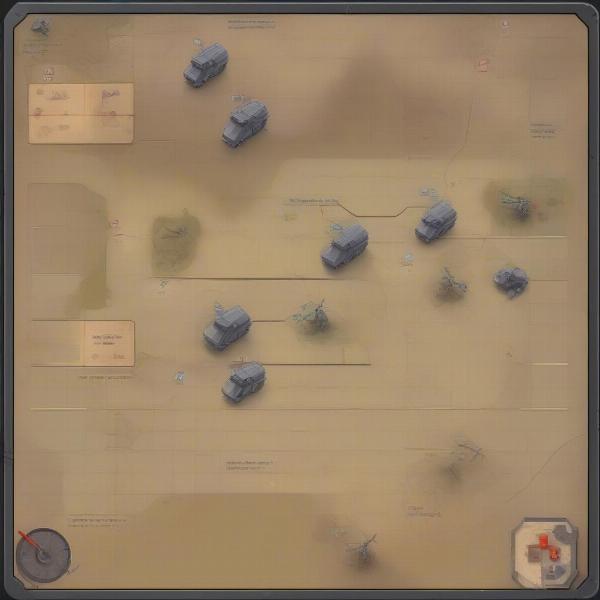At SupremeDuelist.blog, we delve deep into the mechanics of popular games, offering insights that go beyond surface-level strategies. This article will dissect the concept of “you can’t fool me I’m familiar with your game,” exploring how understanding game mechanics and meta strategies allows players to predict and counter deceptive tactics employed by opponents. We’ll examine how this awareness elevates gameplay and what it means to truly grasp a game’s intricacies.
Moving past the initial shock of a new game, players begin to see beyond the flashy visuals and narrative hooks. This deeper understanding of a game’s core systems, the character archetypes, and frequently used strategies form the bedrock of true mastery. This article will examine this process, focusing on how familiarity breeds not contempt, but rather an advantage over less experienced players who might be more vulnerable to tricks and feints.
Spotting the Bluff: Decoding Game Patterns
The phrase “you can’t fool me, I’m familiar with your game” often comes up in high-stakes competitive gaming. It highlights an essential aspect of skilled play: pattern recognition. Players develop an intuition for common strategies, recognizing when an opponent’s actions deviate from established norms. It’s about understanding not just what actions are possible, but also which actions are likely under certain circumstances. This ability is a powerful defense against deceptive maneuvers, as it allows you to perceive deviations from patterns that indicate a trick or bait.
Consider fighting games as an example. A player who understands their opponent’s preferred combos and movement patterns can effectively predict when a feint is coming or when an overhead attack is about to be unleashed. This knowledge allows them to effectively counter and punish deviations from expected behavior. This is a key component of what makes the game so challenging and rewarding to those who learn its intricacies. Similarly, in a real time strategy (RTS) game, understanding the opponent’s economic build and unit composition enables you to anticipate their strategy and respond accordingly.
Recognizing Common Deception Techniques
Many games employ consistent deception tactics:
- Baiting: Intentionally presenting an easy target, only to unleash a counter attack once the opponent commits.
- Feinting: Pretending to go one direction to move in another direction to confuse an enemy.
- Predictive Actions: Intentionally acting in an unexpected manner, based on anticipation of the enemy’s reaction.
- Mimicking: Using the opponents own patterns or preferred tactics against them to disarm them.
- Delayed Actions: Holding back an attack or action until the last possible moment to confuse the opponent.
 Recognizing game patterns is essential in competitive play to avoid being tricked
Recognizing game patterns is essential in competitive play to avoid being tricked
Learning to anticipate and neutralize these deceptions is key to moving beyond casual play. It’s what separates a skilled player from an average one. Understanding a game’s mechanics isn’t just about knowing the rules but understanding the psychology and the tendencies that are present when playing.
Meta-Awareness: The Chess Game Outside the Game
Beyond individual tactics, a player’s understanding of the meta-game is another level of familiarity that makes them less susceptible to being fooled. The meta refers to dominant strategies, character picks, and frequently seen plays that develop within a game’s community. The meta is not static, it evolves alongside patches, balance changes, and player innovation, so keeping up to date is crucial. A player who can grasp the meta can identify the common and efficient tactics utilized by others and formulate counter-strategies. This meta-awareness becomes especially valuable in competitive settings.
“Meta-knowledge is like having a secret key to the lock,” states Anya Sharma, a professional esports coach. “Players who are familiar with the meta are essentially predicting the next move before it happens, making them incredibly difficult to outsmart.”
Understanding the meta is not just about knowing what works; it is also about understanding why it works, and identifying potential vulnerabilities that players might be unaware of. For example, if a particular character combination is popular, a player versed in the meta can predict that combination and develop a strategy to exploit its weaknesses. This strategic depth provides an advantage by letting the informed player stay one step ahead.
How Meta-Awareness Prevents Deception:
- Predicting Character Picks: Knowing which characters or strategies are popular allows you to anticipate your opponent’s choices.
- Exploiting Weaknesses: Meta knowledge allows you to identify and take advantage of inherent weaknesses in popular strategies.
- Adapting to Changes: A strong meta-awareness is critical to adapting to balance changes or shifts in the game’s preferred gameplay style.
- Developing Counter-Strategies: Understanding the meta helps you create effective strategies to counter widely used tactics.
 Players need to understand meta-game strategies to counter deceptive tactics
Players need to understand meta-game strategies to counter deceptive tactics
Meta knowledge does not always result in a single dominant strategy, but also highlights multiple options, each with a specific strength and weakness, which must be considered in real time. It also promotes healthy game evolution and is a constant challenge for players that keeps gameplay fresh and challenging.
Experiential Learning: The Value of “Been There, Done That”
The best defense against being fooled by any game is experience. There is no substitute for having been exposed to various strategies, tactics and tricks and having learned from successes and failures. The repetition of in game experience, allows a player to build muscle memory for both physical actions, but also for mental and strategic skills. Each game teaches new lessons that can be applied to future plays.
“The truth about skill is that it is often made of a hundred tiny learned lessons. One loss in a game against a very good player is worth hours of practice against worse ones,” asserts Kenji Tanaka, a veteran game designer. “Every time you get tricked, you learn not just what happened, but what could happen.”
Experiential learning means that players can anticipate tactics that may have surprised them before. Familiarity also allows players to discern subtle cues that might not be obvious to newcomers. This intuition, which grows with time, is key to anticipating an enemy’s moves, even if they attempt to be deceptive. A player with a lot of time spent with the game will likely have seen all possible tricks and have developed a response to each situation.
The Role of Experience:
- Pattern Recognition: The more you play, the better you become at recognizing game patterns and tricks.
- Strategic Adaptation: Experience lets you adapt to different play styles and tactics on the fly.
- Intuitive Understanding: You develop a sense of when something feels “off” or when a trick is about to happen.
- Muscle Memory: Practice and experience build the physical skills required for execution.
 Playing games provides experiential learning that helps in anticipating tricks and deception
Playing games provides experiential learning that helps in anticipating tricks and deception
Ultimately, the more you have experienced a game, the harder it is to fool you. This does not mean that you will never get outplayed, but it means that you are capable of recognizing a deception the next time it happens, even if the next trick is completely new.
The Importance of Continuous Learning
While experience and meta-awareness are crucial, it’s important to stress that game knowledge is a constantly evolving process. Game developers frequently introduce new content or balance changes. Keeping an open mind and a desire to continue learning can help you adapt when the game you are familiar with changes. Players who stop learning are at risk of being outmaneuvered by those who evolve with the game.
Players should always:
- Stay Updated: Regularly check for patch notes, community discussions, and changes in the meta.
- Experiment with New Strategies: Try new characters, builds, or tactics to keep your own gameplay fresh and unpredictable.
- Analyze Losses: Understand why a particular tactic or trick worked against you so you can avoid being fooled by it again.
- Share Knowledge: Discuss strategies and experiences with other players to broaden your perspectives.
Questions and Answers about Game Familiarity
What does it mean to be “familiar with the game”?
Being familiar with a game means understanding its mechanics, strategies, and the meta that evolves around it. It involves recognizing common patterns and anticipating an opponent’s moves. It’s a deep understanding beyond just knowing the rules, it’s about understanding the core systems.
How can I get more familiar with a game?
You can familiarize yourself with a game through consistent gameplay, analyzing your matches, studying strategies from experienced players, and staying updated with patch notes and meta developments. A combination of practice and study leads to higher skill.
Why is meta-awareness important?
Meta-awareness is crucial because it helps you predict popular tactics and develop counter-strategies. It enables you to see beyond individual moves, allowing you to anticipate the flow of the game as a whole. This helps against deception that relies on a lack of meta knowledge.
What are the signs of a deceptive tactic?
Signs of a deceptive tactic include deviations from expected patterns, exaggerated movements, or a baiting strategy. Identifying these anomalies takes practice and pattern recognition. It comes from familiarity and exposure to a wide variety of styles.
Conclusion: The Advantage of True Familiarity
The phrase “you can’t fool me I’m familiar with your game” encapsulates the core of strategic mastery in competitive gaming. It’s not just about knowing the rules of the game but understanding its nuances, recognizing deceptive tactics, and adapting to ever-changing metas. True familiarity comes from a combination of experience, meta-awareness, and a commitment to continuous learning. Here at SupremeDuelist.blog, we believe that by delving into these concepts, players can not only improve their game but gain a deeper appreciation for the intricate strategies that are the bedrock of their favorite games. Keep practicing, keep analyzing, and most importantly, keep learning, as this will ensure your game knowledge is always sharp and ready to respond to any challenge.
Leave a Reply